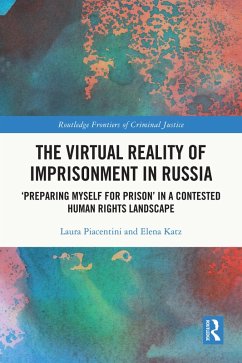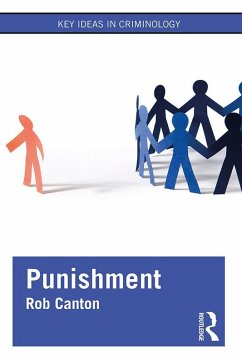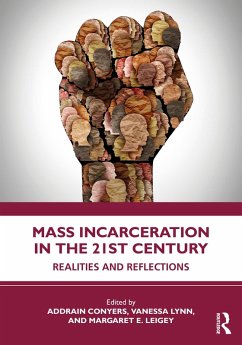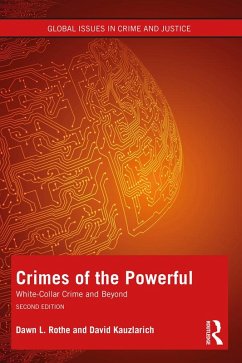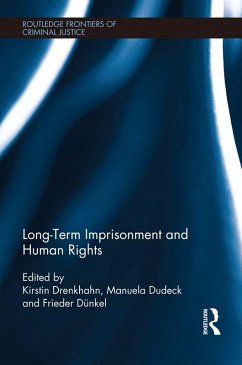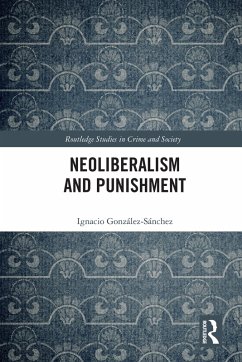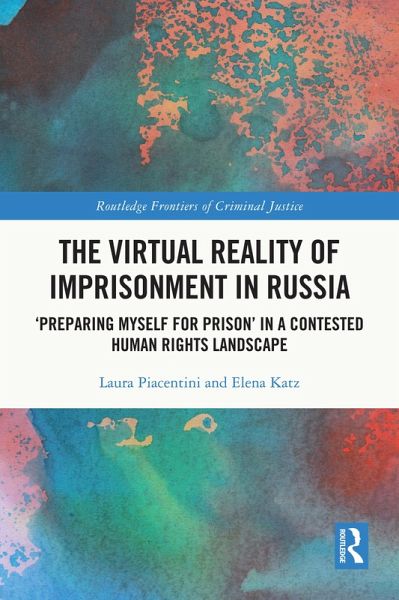
The Virtual Reality of Imprisonment in Russia (eBook, PDF)
'Preparing myself for Prison' in a Contested Human Rights Landscape
Versandkostenfrei!
Sofort per Download lieferbar
39,95 €
inkl. MwSt.
Weitere Ausgaben:

PAYBACK Punkte
20 °P sammeln!
In outlining the online expressions of penal life, this book disrupts the conventional human encounters that underpin empirical criminological scholarship on prisons because, figuratively speaking, prisons in Russia are de-nesting from their institutional moorings and borders.Using the online world of Runet as the research site and presenting research from selectively drawn evidence gathered from secondary data from prison-related websites, it explores the 'moving walls' of the prison from socio-political and cultural perspectives. The book discusses how prisoners and their families articulate...
In outlining the online expressions of penal life, this book disrupts the conventional human encounters that underpin empirical criminological scholarship on prisons because, figuratively speaking, prisons in Russia are de-nesting from their institutional moorings and borders.
Using the online world of Runet as the research site and presenting research from selectively drawn evidence gathered from secondary data from prison-related websites, it explores the 'moving walls' of the prison from socio-political and cultural perspectives. The book discusses how prisoners and their families articulate and give meaning to their experiences when they are online, and while doing so develop their rights awareness.
This book is a pioneering methodological, criminological and theoretical study, the first of its kind in global criminology and humanities, and because it is forging a new path for penal scholarship, cannot be all-encompassing but rather acts as a 'map' for other researchers in different fields to use. It will be useful for scholars working in comparative fields and jurisdictions on the subject of prisons, rights and how the internet is being utilised by prisoners, their families and communities organised around prison activism.
Using the online world of Runet as the research site and presenting research from selectively drawn evidence gathered from secondary data from prison-related websites, it explores the 'moving walls' of the prison from socio-political and cultural perspectives. The book discusses how prisoners and their families articulate and give meaning to their experiences when they are online, and while doing so develop their rights awareness.
This book is a pioneering methodological, criminological and theoretical study, the first of its kind in global criminology and humanities, and because it is forging a new path for penal scholarship, cannot be all-encompassing but rather acts as a 'map' for other researchers in different fields to use. It will be useful for scholars working in comparative fields and jurisdictions on the subject of prisons, rights and how the internet is being utilised by prisoners, their families and communities organised around prison activism.
Dieser Download kann aus rechtlichen Gründen nur mit Rechnungsadresse in A, B, BG, CY, CZ, D, DK, EW, E, FIN, F, GR, HR, H, IRL, I, LT, L, LR, M, NL, PL, P, R, S, SLO, SK ausgeliefert werden.




